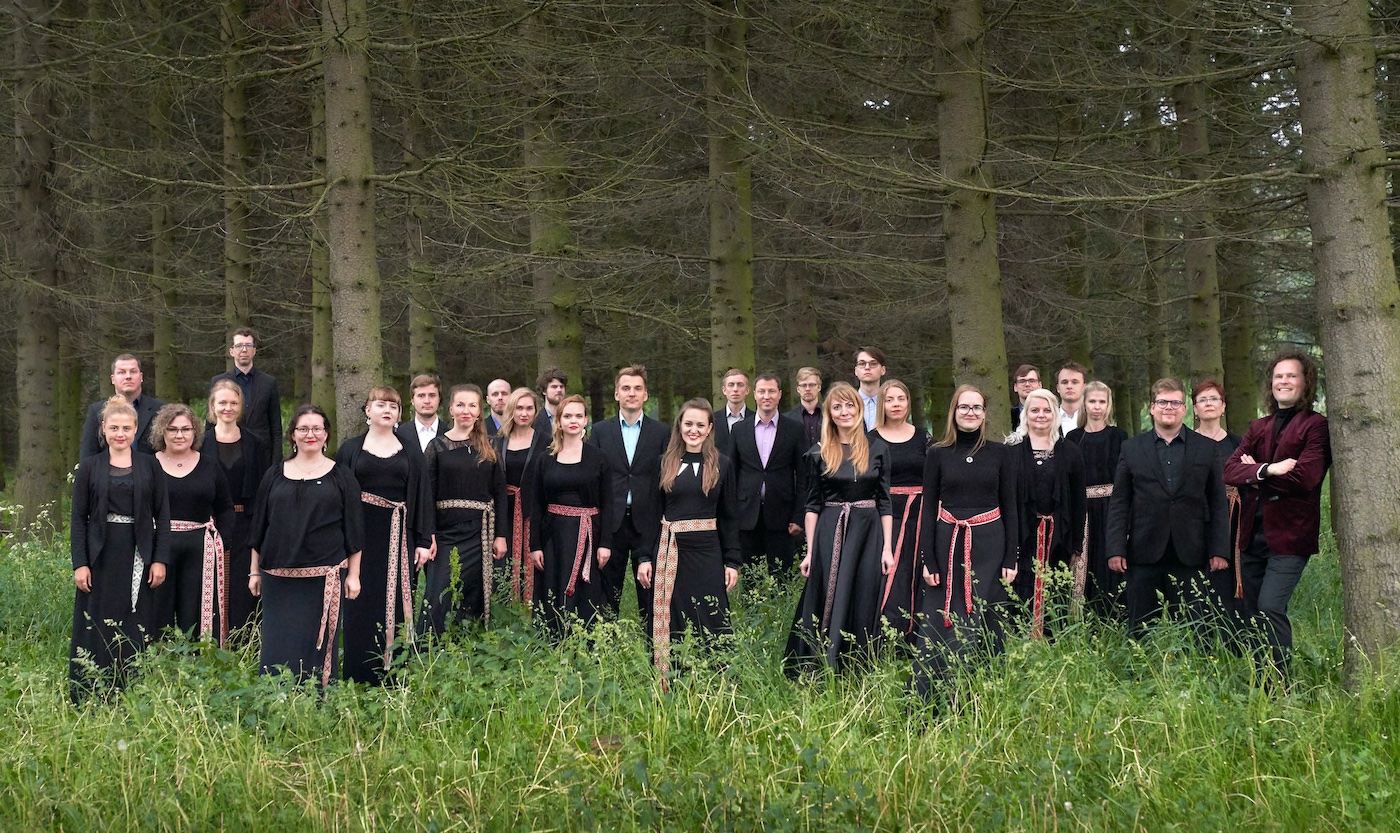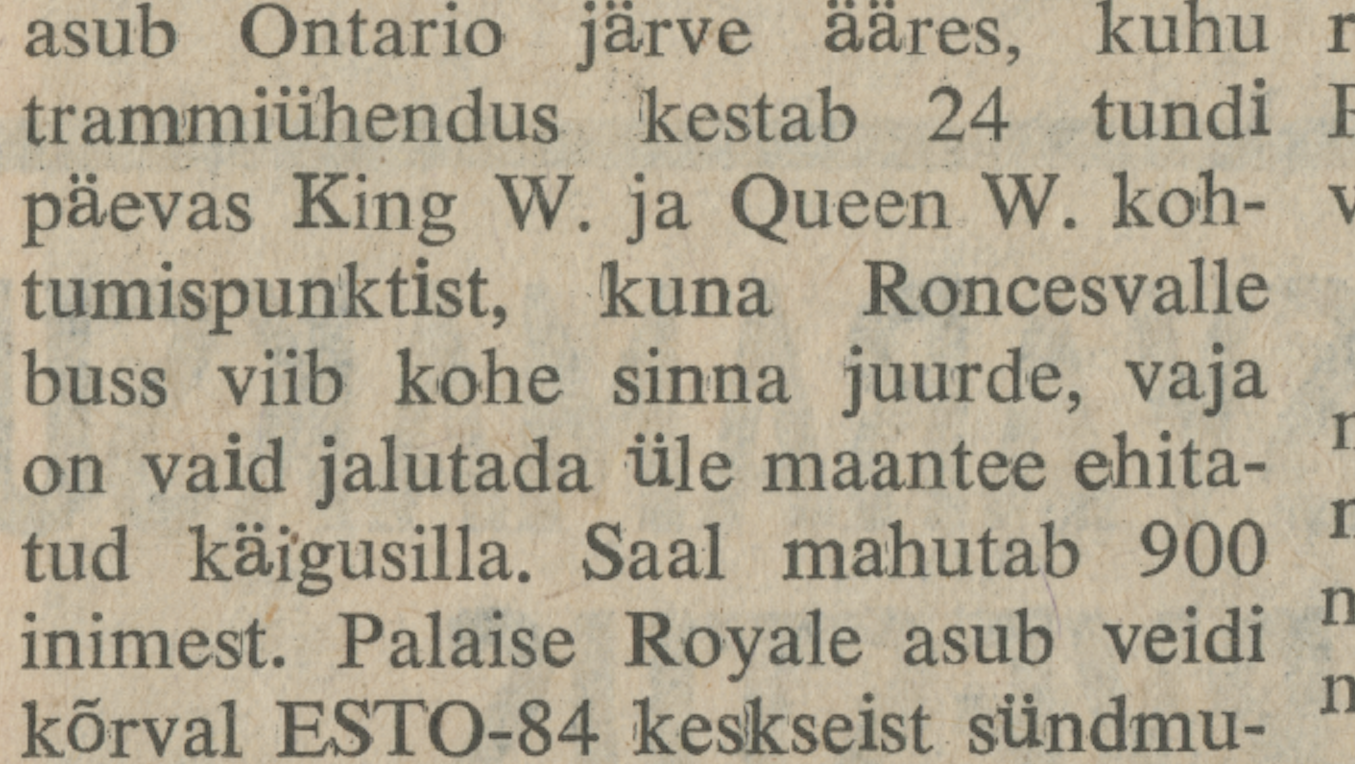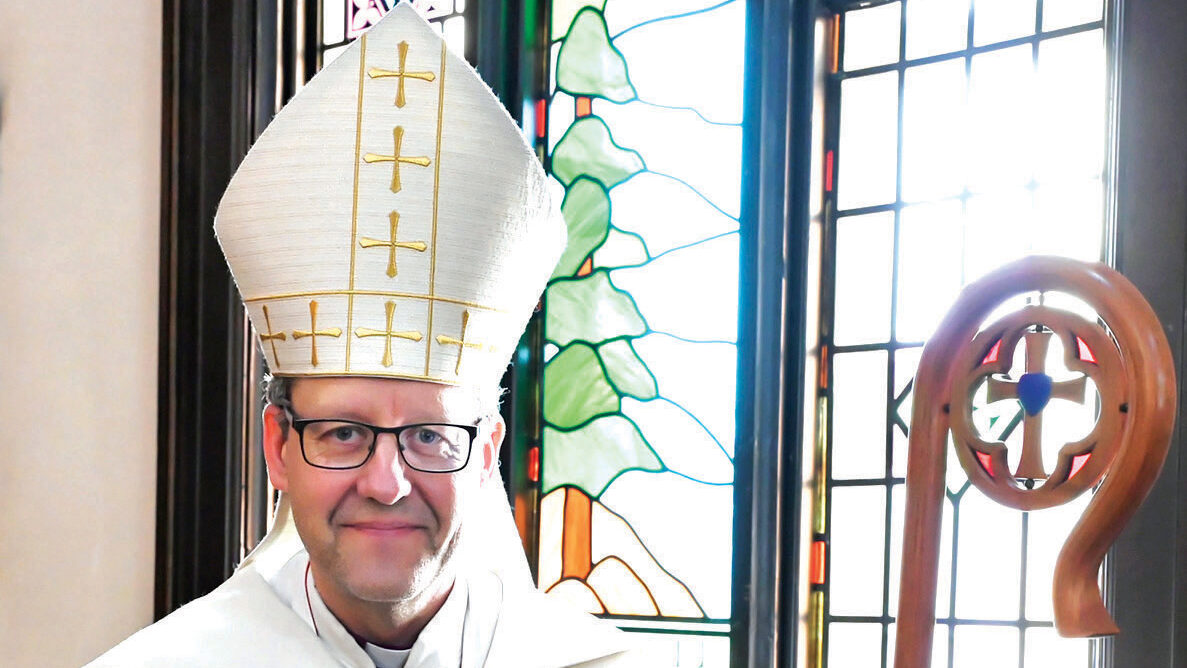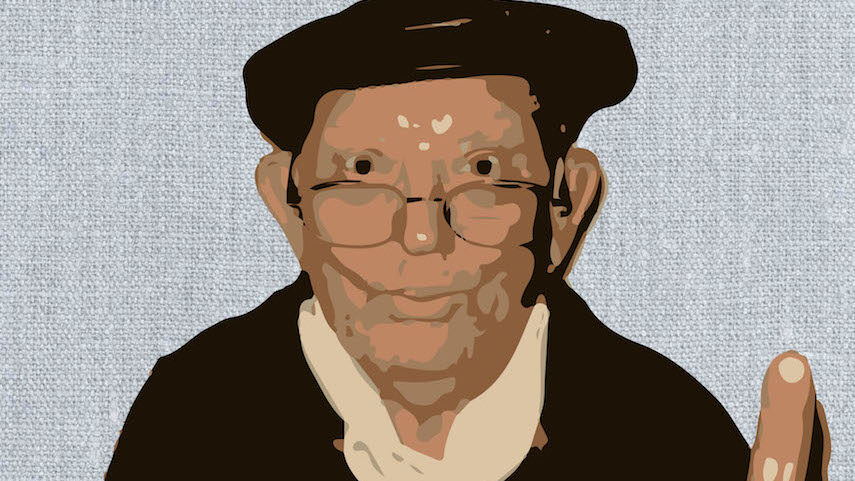On the more hair-raising, spiritually-demanding side of their repertoire is Veljo Tormis' “Raua needmine” (“Curse Upon Iron”) from 1972, arguably his most famous song. American musicologist Mimi S. Daitz writes of how the text of the composition comes from the Kalevala, was “adapted and augmented by August Annist, Paul-Eerik Rummo, and Jaan Kaplinski”, and deals with “knowing the source of iron in order to overcome its deadly power.”
In many cultures and folk traditions, metals are associated with war and destruction, weapons, industry, smoke, and removing humanity from its original place in a pastoral setting. This sentiment dances through with the intense, very present pounding rhythm of a shamanic frame drum in the background. It's a beating that falls and then surprisingly rises again. Bass and tenor voices take turns in the lead role, so to speak, over continuous chanting. It's a high pressure composition, with a clear basis in folklore.
The song cycles of Veljo Tormis' Forgotten Peoples: The Ancient Songs of my Balto-Finnic Kinsfolk are especially well-known among the music Collegium Musicale sings. These compositions were created with the influence of the traditional music and languages, sometimes with very few speakers, of Finno-Ugric peoples living on the shores of the Baltic Sea. Between 1970 and 1990, Tormis gathered source material from cultures such as the Izhorians, Livonians, and Votians. Audiences may be familiar with these songs if they watched the documentary In the Steps of Forgotten Peoples that was streamed during last year's Estonian Music Week festival.
Of a more typically classical form is the choir's interpretation of Pärt Uusberg's song “Talveöö” (“Winter Night”), which utilizes the words of poet Juhan Liiv. It is sweet sounding. It paints the picture of a resting place away from trials and tribulations, akin to what we would see in a nativity scene.
Somewhere in the middle is Erkki-Sven Tüür's “Gloria.” In terms of the overall timbre, it's quite smooth. But it offers dissonant combinations of notes and mysterious, withering melodies, where profound hope and mourning are found side by side.
Informing these performances are the many years Endrik Üksvärav spent studying conducting, trumpet, French horn, and the vocal elements of early music. Highlights of his career so far include being awarded the Order of Orange-Nassau medal from King Willem-Alexander of the Netherlands in 2018. The following year, he made his Estonian Song Festival conducting debut.
As Estonian cultural ambassadors, the members of Collegium Musicale regularly tour through Europe, Asia, and now in North America. Their force as a live act has won them the title of Choir of the Year in Estonia three times, more than any other choir in Estonia. And their reputation does not precede experimentation: to open the 50th Estonian Culture Days of 2022, happening in New York City, they came together with Estonian rapper Nublu for his song “Öölaps” (“Night Kid”).
You can see Collegium Musicale perform in Toronto at 8:00 PM on May 26th at Jeanne Lamon Hall (Trinity-St. Paul's United Church). Tickets for the main floor are $70 and balcony tickets are $45, available for purchase on Eventbrite. This concert, focusing most of all on the music of Veljo Tormis, will be part of SING! The Toronto International Vocal Arts Festival—Canada's largest a capella festival.
You can also see them in Hamilton in the historic space of The Cotton Factory, where the choir will perform on June 1st at 8:00 PM, together with members of the Hamilton Philharmonic Orchestra. This will be a shorter concert, part of the HPO Intimate and Immersive series, including pieces by Erkki-Sven Tüür and Arvo Pärt. Tickets are available from estonianmusicweek.ca on May 6.
Finally, at 2:00 PM on June 5th in Ottawa, they will perform Sounds of Freedom, which draws from the works of Estonian composers subsequent to Estonia re-gaining independence in 1991. Tickets for this concert, taking place at Carleton Dominion-Chalmers Centre, ($45) are available from Eventbrite.
Audiences will witness the infinite possibilities of the human voice. The songs will bring listeners in contact with the lineage of Estonians. Yet, each show will approach this end differently, so try to make it to as many as you can!
Written by Vincent Teetsov, Toronto
***
These concerts are being organized by Estonian Museum Canada (VEMU) and Estonian Music Week, itself a project of VEMU. Major funding is provided by the Estonian Foundation of Canada. Support is also provided by the Estonian Embassy in Ottawa, the Estonian Ministry of Culture (their program “Eesti kultuur maailmas”), and the Estonian Integration Foundation. EMW's partners are SING! The Toronto International Vocal Arts Festival, the Hamilton Philharmonic Orchestra, and The Cotton Factory.




